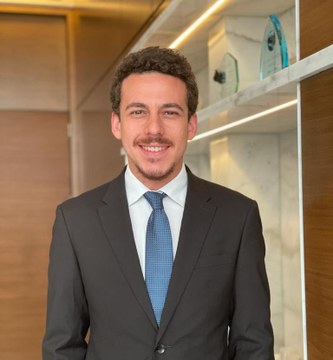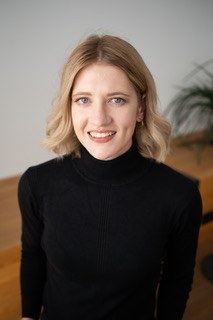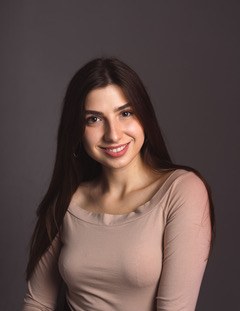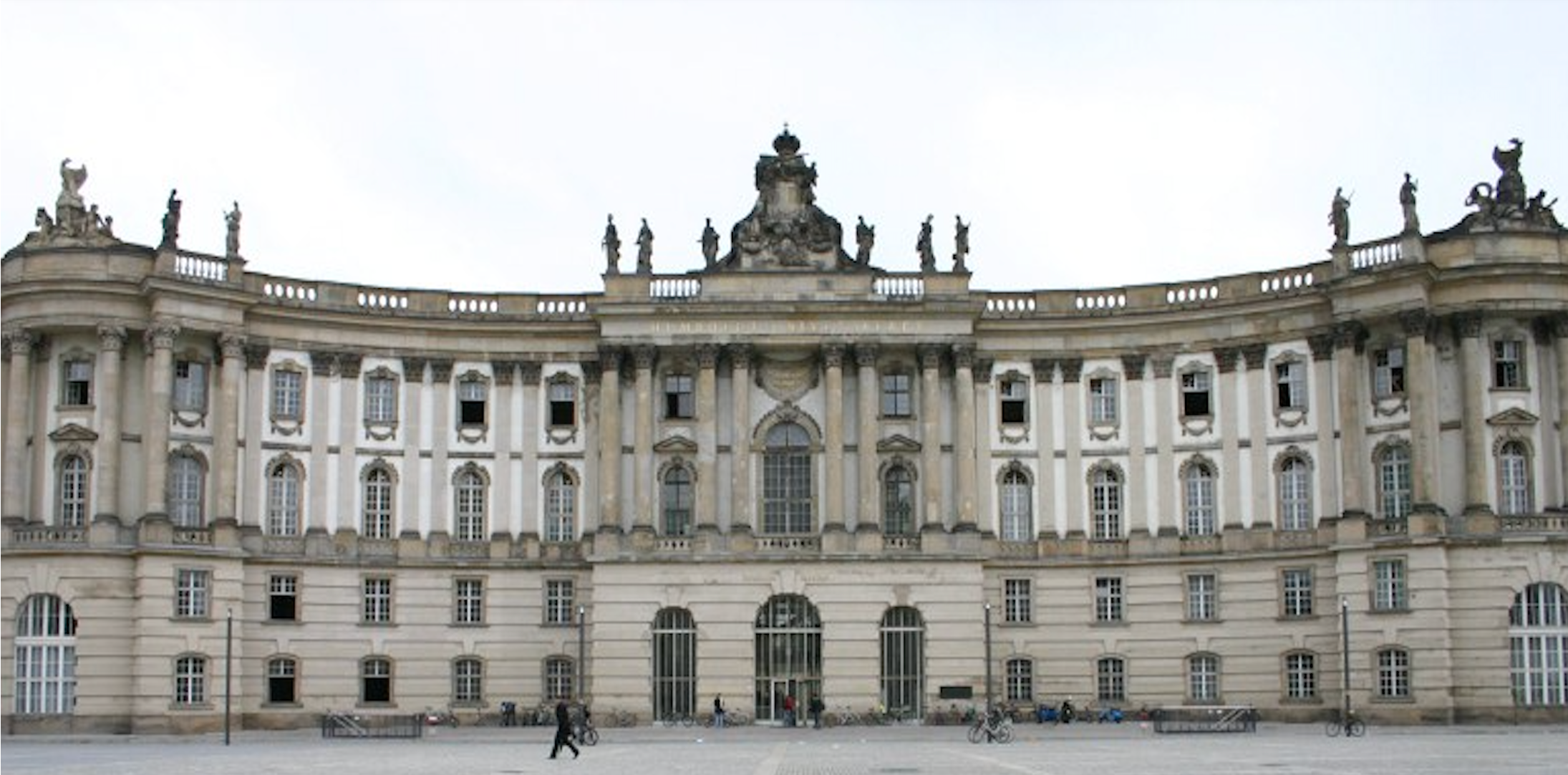Class of 2022/2023
Diego Meléndez Hirezi
Diego Meléndez Hirezi is a Salvadoran qualified lawyer. He graduated from the Superior School of Business and Economics of El Salvador. For more than five years, he worked as an associate in the litigation and arbitration department of Arias Law, a regional Central American law firm. There, he acted as counsel in litigation and arbitration proceedings.
He is an alumnus of the International Dispute Resolution LL.M. program at Humboldt-Universität zu Berlin. During his time in Germany he worked as a visiting professional at Wagner Arbitration and as an intern at Borris Hennecke Kneisel.

1. Why have you decided to pursue a Master of Laws degree abroad?
When I was in law school, I decided to participate in a moot competition on arbitration and commercial law hosted by Carlos III University of Madrid. There, I had the chance to get a first contact with international arbitration and to meet students from all around Latin America and Spain.
3. How was the application process? Was it demanding?
I felt that the application process was pretty straightforward. It was not demanding per se, but it required time and attention to detail.
Some practical tips that might be of help: If you need to take an English test to prove your proficiency, do it well in advance before the deadline so that you can retake it in case you did not reach the required minimum score in the first take. Also, participate in as many extra curricular activities, seminars, or competitions related to arbitration as possible, so that you can prove your interest in the subject and increase your chances of being accepted. At last, reach out to people that have already pursued an LL.M. abroad so that they can share with you some guidance on what these programs usually look for in applicants.
3. What was the decisive reason for you to apply for the IDR LL.M. at Humboldt-Universität zu Berlin?
The prestige of the University and the reputation of the program. Apart from that, as you might have heard before: Berlin is always a good idea.
4. Reflecting on your experience, how would you describe the diversity of perspectives and the backgrounds among the fellow students?
One of the things that I appreciate the most about the program is how diverse it is. Almost everyone comes from a different country, and we all have a broad range of ages, mentalities and professional backgrounds.
The experience that you will share with your fellow classmates during your time in Berlin will allow you to make friends from far and wide, and why not, to pave the path for personal growth. For me, understanding the culture and mentality of others opened my mind and showed me that there are many ways of being right.
5. How did you enjoy living and studying in Berlin?
Berlin is an amazing city. There is something to do for every taste and budget: Exploring Museumsinsel, having a Glühwein with your classmates in the Christmas Market at Bebelplatz, ice skating in Alexanderplatz, making a picnic with your friends in Viktoriapark, taking a swim in Schlachtensee or simply exploring the endless variety of restaurants and bars around the city.
My advice: Take advantage of the cold winter days to go deep into your reading assignments and get ready to enjoy summer in Berlin to the fullest!
6. Which modules did you like the most and why?
My favorite module was negotiation. I liked the fact that it was fun, interactive and case based.
Most people engage in negotiations on a daily basis. Understanding the principles and skills necessary to do it properly is not only helpful in your everyday life but also makes you a more competent lawyer.
7. Balancing the various components of the LL.M. curriculum can be demanding. Could you share your time management technique or approach that helped you excel academically and make the most of your experience?
Avoid procrastination at all costs. The LL.M curriculum is very demanding and you will have to invest time every day to keep up with all of your reading assignments.
Aside from that, the LL.M is a work hard play hard kind of experience. Make sure that you fulfill all of your responsibilities but also try to enjoy your time in Berlin as much as possible. The year will go by very fast.
8. Can you share a particular group activity, workshop, project or research topic that you found especially engaging during your time in the program, and how it contributed to your professional growth?
As part of your LL.M. adventure, you will have the opportunity to volunteer as arbitrator in the Berlin Pre-Moot and in the Vis-Moot in Vienna. For me, this experience was particularly engaging, because I had the chance to apply the knowledge I gained in the arbitration module and to contribute to one of the biggest international arbitration events in the world.
Thousands of people from all corners of the world prepare every year to participate in this event as competitors, coaches and arbitrators. Being there and seeing all this display of effort for the sake of arbitration allows you to better understand its relevance, and makes you reaffirm your commitment to the professional path you have chosen.
9. What are some of the highlights of the IDR LL.M. adventure in Berlin?
The people that I met and the relationships that I built. Apart from the studies, your LL.M experience comes with the opportunity to make meaningful connections that hopefully will last a lifetime.
Try to talk and engage with everyone of your classmates. I'm pretty sure that you will learn from them and they will make your time in Berlin a happier experience.
10. How did you manage to do internship and continue with the Master Thesis and exam preparation?
This definitely was the most challenging part of my time in the program. I believe that it all comes to how you approach the drafting of your Master Thesis.
My advice is that you should start doing your research as soon as possible. Try to set aside some time everyday to make some progress and this will free you up to dedicate the necessary time to your internship and exam preparation.
11. What are your plans for after the graduation and going into 2024?
I fell in love with Berlin and I wish to continue my life here. My plan is to explore the opportunities that I have, either as part of a law firm or as researcher in a university.
12. Would you recommend the IDR LL.M. to other young lawyers? Why?
Living in Berlin and being part of the program has been the best experience of my life so far. I would recommend it to any young lawyer who aspires to pursue a career in arbitration and to build relationships with colleges from all around the world.
The program has an excellent structure and the professors are world class experts in their respective fields. The coordination makes sure that you are introduced to relevant players in the international arbitration scene in Germany and invites you to events that allow you to network and gain additional knowledge.
Ezanne Tessendorf
Ezanne Tessendorf currently works as an HR Director at a Swiss Biotech Company. She is a South African qualified lawyer and has practiced and specialized in employment law and labour dispute resolution prior to her current position. She also worked as a Senior Lecturer in the Mercantile Law Department at the University of the Free State in South Africa where she taught several employment dispute resolution modules to LL.M. students. Ezanne holds an LL.B., an LL.M., with specialization in labour law (cum laude), and recently obtained a second LL.M. from Humboldt-Universität zu Berlin in the IDR LL.M. Program.

1.Why have you decided to pursue a Master of Laws degree abroad?
I hold a Master of Laws degree with a focus on labour law from South Africa, my home jurisdiction and as my professional trajectory shifted from that of a traditional employment lawyer to dispute resolution in web3 and blockchain, I recognized interesting parallels between traditional labour dispute mechanisms and those emerging in the digital realm. This insight led me to explore advanced studies in the broader field of International Dispute Resolution. After conducting research on appropriate programs that would cover all the elements I wanted to know more about from a traditional international dispute resolution sense, I decided to apply to the program offered by Humboldt University. I am confident that deepening my expertise in international dispute resolution will not only enrich my professional capabilities, but also allow me to make a more substantial contribution to the evolving landscape of blockchain-based disputes.
2. What was the decisive reason for you to apply for the IDR LL.M. at Humboldt-Universität zu Berlin?
After carefully researching top universities specializing in International Dispute Resolution, I chose Humboldt University based on its outstanding academic merit compared to other institutions. Additionally, I was particularly impressed by the program's commitment to creating a diverse and multinational learning environment, which I highly value.
3. How did you enjoy living and studying in Berlin?
Living and studying in Berlin has been a great experience for me. The city is full of history and culture, but modern and innovative at the same time.
4.Which modules did you like the most and why?
Mediation. The practical teaching style and approach of this module allowed me to apply theoretical concepts to real-world scenarios and deepened my understanding of effective conflict resolution. I particularly enjoyed how the module encouraged critical thinking and adaptability.
5.Balancing the various components of the LL.M. curriculum can be demanding. Could you share your time management technique or approach that helped you excel academically and make the most of your experience?
The initial semester presents a challenging workload, but it is certainly manageable with effective time management. Proactive engagement with course materials—such as pre-reading before each class—can substantially lighten the load. If you are considering working while studying, this is possible, however, will likely limit your free time.
6. What are some of the highlights of the IDR LL.M. adventure in Berlin?
The opportunity to be lectured by arguably the most knowledgeable lecturers and practicians in each respective field.
7.Would you recommend the IDR LL.M. to other young lawyers? Why?
Undoubtedly. By means of how the curriculum is designed, you are introduced not only to likely the most respected academics and practicians in the field, but also opportunities for your career. There are countless interactions with external law firms and the Program attempts to introduce as many opportunities for networking and collaboration as they possibly can.
Oleksandra Hnatiuk
Oleksandra is a Ukrainian lawyer with experience in corporate, migration law and commercial arbitration. From the early start of the LL.M. program until now, Oleksandra has worked at Squire Patton Boggs in Berlin, assisting in investment arbitration cases. Apart from her studies at Humboldt-Universität zu Berlin, Oleksandra is also pursuing her Master of Law degree at the Taras Shevchenko National University of Kyiv to be admitted to the bar soon. Besides that, Oleksandra is actively involved in mooting and extra courses. She participated in the Willem C. Vis International Commercial Arbitration Moot 2020/2021, Nuremberg Moot Court 2021, and Foreign Investment International Arbitration Moot 2022 on behalf of her university in Kyiv; together with some of her LL.M. colleagues, she completed Mediation school organised by Tulane University.

1. Why have you decided to pursue a Master of Laws degree abroad
Arbitration is a relatively new and niche field in Ukraine, so we did not have any specialised IDR programs at the time. That was my main thought. Besides my academic thirst, I was also eager to obtain my first living abroad experience and get to know foreign cultures better. It worked out. Lastly, it is an open secret that the German language is one of the most popular ones, so I wanted to learn it from the natives in Berlin. Ha-ha, that part was a tricky one :D!
2. How was the application process? Was it demanding?
My main focus was on obtaining a scholarship for my studies, so the application process was pretty demanding and exhausting. However, I was able to manage all the difficulties in preparing the necessary documents: e.g., motivation/regimentation letters. As soon as all the documents were ready, the process went smoothly. The IDR coordination team answered all the questions, widely supported us during the whole process and patiently explained all the basics hundreds of times.
3. What was the decisive reason for you to apply for the IDR LL.M. at Humboldt-Universität zu Berlin?
“Poor but sexy” is what the mayor of Berlin said about his city in 2003. That is still true. This is indeed applicable to the IDR LL.M. :)
4. Reflecting on your experience, how would you describe the diversity of perspectives and the backgrounds among the fellow students?
That is the part I love about the IDR LL.M program the most! We had a very diverse group from both cultural and background perspectives. Some people had 20+ years of experience, while others recently graduated bachelor at their home universities. Some come from hot Latino counties, and others from regions with minus 40° in the winter. But the most important thing was that we walked our path hand in hand, not even feeling the age differences, sharing the experience of seeing someone’s first snow and dancing first salsa together.
5. Balancing the various components of the LL.M. curriculum can be demanding. Could you share your time management technique or approach that helped you excel academically and make the most of your experience?
It depends. The most annoying and the most lawyer answer ever - I know. But enjoying Berlin depends, at least in my case, on the season. During spring and summer, it is the best place on the Earth, but in winter, I would run away from its cold. Of course, I exaggerate with the second part, but still, Berlin’s winter is physiologically severe.
However, summer Berlin is all about parties, beer gardens, outdoor workouts, picnics, festivals and much more. This season stole my heart. Also, we didn’t have lots of classes in the second semester, so it was possible to enjoy our summertime with friends.
6.What are some of the highlights of the IDR LL.M. adventure in Berlin?
I think that the soft skills modules are the hardest to teach. Despite that, the negotiation and oral advocacy courses were so engaging and structured that you didn’t get lost and could see yourself progress step by step. Thanks to the lecturers’ valuable insights the classes prepared us not only for work but for life.
7. Can you share a particular group activity, workshop, project or research topic that you found especially engaging during your time in the program, and how it contributed to your professional growth?
No doubt, these were the negotiation classes. Being confronted with my dear groupmates was not always easy; however, to a very great extent, it benefited my career. It was the time I learned how to be nice but demanding at the same time.
8.What are some of the highlights of the IDR LL.M. adventure in Berlin?
Anytime we gathered together with our LL.M. classmates was unique (yeah, you can see that I love these guys). I truly enjoyed the casual talks after the classes in the Mensa or a bar. But my highlights were the LL.M. National Drinks Party, our Prague trip and Halloween clubbing. Even though it sometimes takes some time to remember the whole sequence of events of that nights…
9.How did you manage to do an internship and continue with the Master Thesis and exam preparation?
I think that time management is a key. However, I will not pretend that all the duties were easy to handle, especially when the weather gets better and your focus shifts to going out instead of your studies. However, I think I was just lucky. During my internship, I had the support of my colleagues, who understood that I needed to study, so they offered me a pretty flexible working schedule. Writing the Master Thesis and exam preparation, on the other hand, was boosted by the enthusiasm of my group mates.
10. What are your plans for after the graduation and going into 2024?
I am staying in Berlin and going ahead with my arbitration career. I find the arbitration community here very welcoming and supportive. Despite being a super international city, Berlin is not as commercialised as its metropolitan brothers. You still can find familiar names on the conference lists, see the same faces in the lunch place next to the University/office and might bump into your professor in the bookstore. You can meet your colleagues and have the opportunity to get to know them better, which is not usually the case in a capital city. I enjoy this vibe and want to pursue my career here for the next few years.
11. Would you recommend the IDR LL.M. to other young lawyers? Why?
Ten times YES and even more! The program is an ideal hard and soft skills booster. No doubt, I learned a lot about arbitration; however, I am 100% sure that I got to know even more about the different cultures, their history, peculiarities of politics and receipts of drinks. The IDR LL.M. at Humboldt University was my first real studying experience. I was happy about waking up at 6 a.m. to go to the classes in the cold winter mornings since I knew I would see my LL.M. buddies, and we would have fruitful conversations about the IDR with our professors.
All in all, I promise you will not regret your decision to study IDR LL.M. at Humboldt University and become a part our alumni family!
